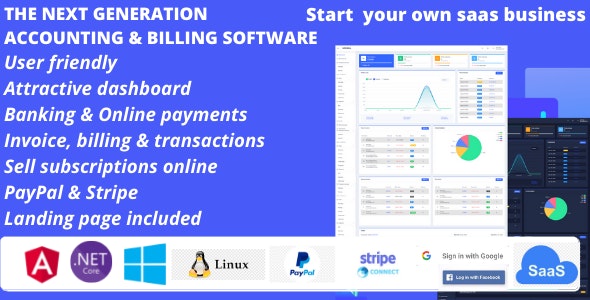
The country will become more energy efficient, which means that environmental professionals will have more job opportunities. For baseline assessments, monitoring and compliance with regulations, environmental professionals will be required. Productivity in the environment is directly linked to economic productivity. High productivity means more economic activity in various industries, and environmental professionals will be in higher demand.
Education required
Although a Bachelor's degree is usually sufficient for employment as an Environmental Consultant, some employers prefer candidates with a Master's degree. Check the website for the organization you're interested to see if they prefer candidates with an advanced degree. A Master's program may be an option if you are interested.

If you're interested in becoming an environmental consultant, it's important to have a background in environmental science. A master's degree can be earned in this area and you can specialize in different areas such as air and environmental quality or land-use planning. This will give rise to a higher income and allow you apply for positions in government agencies. If you work for government agencies, it is possible to influence environmental policy or ensure companies meet environmental standards.
Salary range
The average salary for environmental specialists is $72,000. However the actual figure could be higher, lower or both. The highest paid consultants make more than $100,000 annually while the lowest-paid earn less than $30,000 annually. This job's pay range is affected by many factors including education and experience.
There may be a wide range of salaries for environmental consultants depending on their area of expertise and where they are located. Another factor is the education requirement for a specific job. Many environmental consultants may have more than one degree. This could impact their earnings.
Work environment
You will need to consider several factors when looking for work in the environmental consulting sector. You will need to be able to prioritize and manage your time, regardless of whether you work for a large company or a small boutique firm. Environmental consulting jobs can involve working with a variety of clients at one time, and it's important to learn how to divide your time between multiple tasks while keeping the project moving forward.

Sometimes, environmental consultants may work on weekends in order to meet deadlines or complete surveys. They may also travel often to meet clients, attend conferences and visit clients. Some consultants may travel for weeks, even if they work in small teams. Those who choose this path should be prepared to work long hours to meet deadlines. In addition, environmental consultants are required to stay up-to-date on industry trends, as the industry is constantly evolving and businesses become increasingly concerned with providing integrated solutions.
FAQ
Do I need to pay tax on consulting income?
Yes, you must pay tax on the consultancy profits. The amount you earn depends on your annual income.
You can also claim expenses if you are self-employed. This includes rent, childcare, food, and transportation.
You can't deduct the interest on loans, vehicle damage, or equipment costs.
Only 25% of your expenses can be claimed back if you make less than PS10,000 annually.
You might be taxed even if you make more than the threshold depending on whether your income is contractor or employee.
Employees are generally taxed through PAYE (pay as you earn) and contractors through VAT.
How do I choose the right consultant?
There are three main things to keep in mind:
-
Experience - How skilled is the consultant? Are you a beginner or an expert? Is her resume a proof of her skills and knowledge?
-
Education – What did the person learn in school? Did he/she pursue any relevant courses once he/she graduated? Do we see any evidence of this learning in the way he/she writes?
-
Personality - Do we like this person? Would we want him/her to work for us?
-
These questions help to decide if the consultant suits our needs. If the answers to these questions are unclear, it might be worth a first interview to get more information about the candidate.
How do you get clients for your consultancy business?
It is important to identify an area of passion. You could choose anything from public relations to social media, but it should be something you love. You may need to start small and find a niche market like web design. Once you find the right niche, it is important to know what makes it tick. What problems does it solve Why should people use them? But most importantly, what can you do to help them?
You can also try approaching businesses directly - perhaps they need someone who understands SEO or content creation, or maybe they just want to know where to go for advice on social media strategy.
If all else fails why not offer your services to free events like conferences and networking evenings? You'll meet many potential customers without spending money on advertising, and you'll be able to show off your skills.
Statistics
- So, if you help your clients increase their sales by 33%, then use a word like “revolution” instead of “increase.” (consultingsuccess.com)
- WHY choose me: Why your ideal client should choose you (ex: 10 years of experience and 6-week program has helped over 20 clients boost their sales by an average of 33% in 6 months). (consultingsuccess.com)
- Over 62% of consultants were dissatisfied with their former jobs before starting their consulting business. (consultingsuccess.com)
- According to statistics from the ONS, the UK has around 300,000 consultants, of which around 63,000 professionals work as management consultants. (consultancy.uk)
- According to IBISWorld, revenues in the consulting industry will exceed $261 billion in 2020. (nerdwallet.com)
External Links
How To
What's a typical day like for a Consultant?
Depending on what type of work you do, your typical day may vary. But, in general, you will spend your time researching, planning and meeting new clients.
You'll often have meetings with clients where you can discuss issues and solve problems. These meetings can be conducted over the phone, by email, face-to-face, or online.
Sometimes, you may be asked to create proposals. These are documents that outline your ideas and plans for clients. You'll need to discuss your proposals with a mentor, colleague, or friend before you present them.
You will need to create content after all your planning and preparation. For example, you could be writing articles, designing websites, creating videos, editing photos, or conducting interviews.
You may need to conduct research depending on the scope of your project to find relevant statistics and figures. This could include finding out how many customers your company has and whether they purchase more than one product.
After gathering enough information, you can present your findings to clients. You may give your findings orally or in written form.
Finally, you must follow up with clients after the initial consultation. For example, you might call them periodically to see how things are going or send emails asking them to confirm that they received your proposal.
Although this process can take time, it is important to stay focused and build good relationships with your clients.